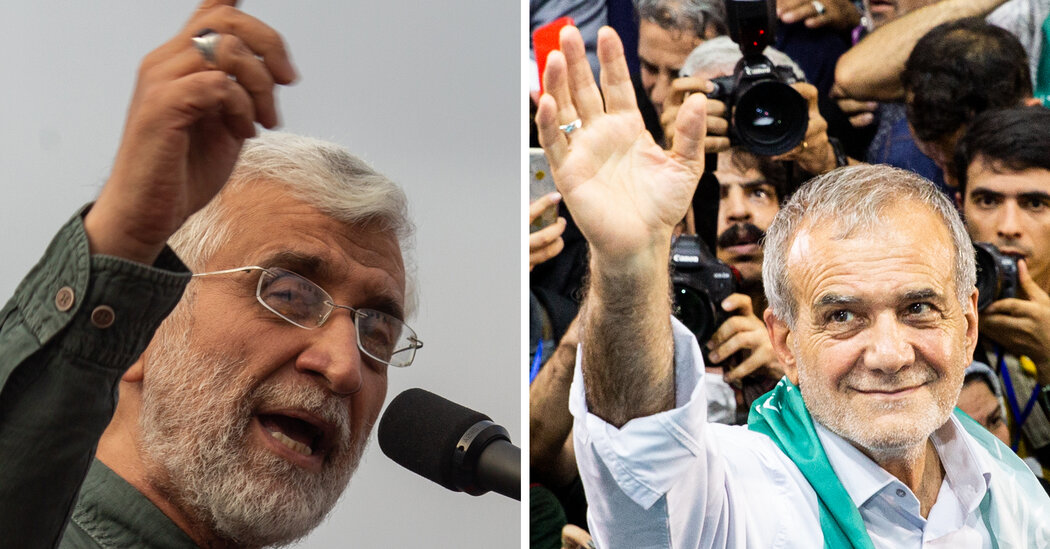
Reformist Reaches Runoff in Iran’s Presidential Election
A reformist candidate critical of an Iranian law that requires women to wear head scarves will compete next week against a hard-line conservative in a runoff election for the country’s presidency, state media said on Saturday, following a special vote after the previous leader was killed last month in a helicopter crash.
A second round of voting, which will pit the reformist, Masoud Pezeshkian, against Saeed Jalili, an ultraconservative former nuclear negotiator, will take place on July 5. The runoff was in part the result of low voter turnout and a crowded field of four candidates, three of whom competed for the conservative vote. Iranian law requires a winner to receive more than 50 percent of all votes cast.
Participation in another round of voting will strain the energies of an already apathetic electorate, unsatisfied by their leaders at a time of international and domestic turmoil. Iran’s economy is cratering under punishing Western sanctions, its citizens’ freedoms are increasingly curtailed and its foreign policy is largely shaped by hard-line leaders.
The campaign, which initially included six candidates — five conservatives and one reformist — was notable for how candidly those issues were discussed and a public willingness to attack the status quo. In speeches, televised debates and round-table discussions, the candidates criticized government policies and ridiculed rosy official assessments of Iran’s economic prospects as harmful delusions.
Public dissatisfaction in any new president’s ability to bring change was reflected in low turnout for the election: According to Iran’s state news agency, only 40 percent of eligible voters cast ballots.
In the official results announced on Saturday, Dr. Pezeshkian led with 10.4 million votes (42.4 percent), followed by Mr. Jalili at 9.4 million (38.6 percent). A third conservative candidate, Gen. Mohammad Baqer Ghalibaf, the current speaker of Parliament and former mayor of Tehran, was a distant third at 3.3 million (13.8 percent).